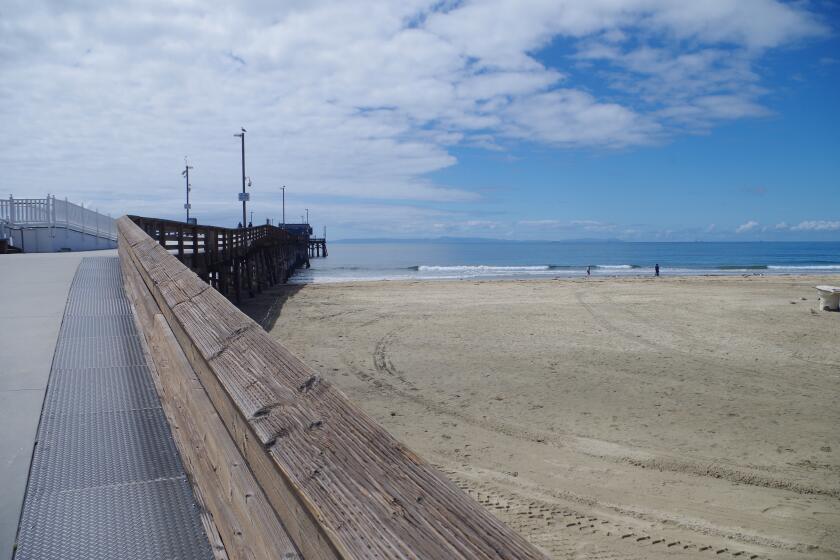Riding the coattails of a lagging economy
- Share via
Paul Clinton
Local mortgage providers are continuing to benefit from the more
than two-year boom in refinancing that has help boost an otherwise
flagging economy.
Downey Financial Corp., Newport Beach’s largest public company,
saw its mortgage business explode following 1999, when mortgage rates
began their fall to now-historic lows.
And there’s no sign of a slowdown, said Thomas Prince, Downey’s
chief financial officer.
“There are a lot of loans in the pipeline,” he said. “There has
been a high level of activity.”
Downey’s revenue jumped 41.56% in 2000, to $839.5 million, and
another 5.8%, to $888.2 million, in 2001. Through three quarters this
year, Downey has brought in almost what it took a full 1999 to
achieve.
Downey, which trades on the New York Stock Exchange under the
symbol DSL, operates primarily as a single-family lender. About 97%
of Downey’s loan portfolio is in that area, Prince said.
Downer peaked at $56.42 on May 6, over a 52-week period, and
closed Friday’s trading at $40.28. The stock traded near $20 a share
at the beginning of 2000.
Impac Mortgage Holdings, also in Newport Beach, also has reaped
the rewards of a white-hot lending market. The public company offers
shares on the American Stock Exchange under the symbol IMH.
Impac’s revenue jumped 19.77%, to $151.3 million, in 2000, and
14.96%, to $173.9 million, in 2001.
The company is a Real Estate Investment Trust that invests in what
are known as “nonconforming” loans, which require less income
documentation to acquire.
Impac, which traded at $4 a share in early 2000, closed Friday at
$12.17. It peaked June 28 at $13.48.
The recent success of both companies illustrates a broader
nationwide trend in the mortgage industry, spurred by low rates.
The interest rate for a 30-year fixed-rate mortgage with Freddie
Mac came in at 6.03% Thursday. The average 15-year fixed mortgage was
5.26% and a one-year adjustable-rate loan, or ARM, was 3.79%.
Mortgage rates began their historic tumble during the summer of
2000, when a 30-year fixed mortgage was at 8.5%.
Over the past two years, more than half of the nation’s mortgage
debt has been refinanced, according to a study released Wednesday by
the Homeowners Alliance.
Since that time, close to $2.5 trillion in debt has been
readjusted for a savings of $274 billion, the study reported. That
activity has accounted for 20% of the country’s gross domestic
product growth.
“A lot of the consumer strength has come from the customer who has
taken cash out of the process,” said Mark Zandi, the study’s author.
“There has been a lot of refinancing activity.”
In Orange County, mortgage refinancing has contributed 38%, or
$4.1 billion, of the economic growth this year.
Zandi, the chief economist and co-founder of Economy.com, says he
sees the historic mortgage boom coming to a close if the economy
improves during 2003 -- as many economists have predicted.
But there is still time for homeowners to sneak in under the wire,
Zandi said.
“There is [time], but I wouldn’t wait too long,” Zandi said.
“Mortgage rates are very volatile and they could go up rapidly.”
* PAUL CLINTON covers the environment, business and politics. He
may be reached at (949) 764-4330 or by e-mail at
All the latest on Orange County from Orange County.
Get our free TimesOC newsletter.
You may occasionally receive promotional content from the Daily Pilot.



